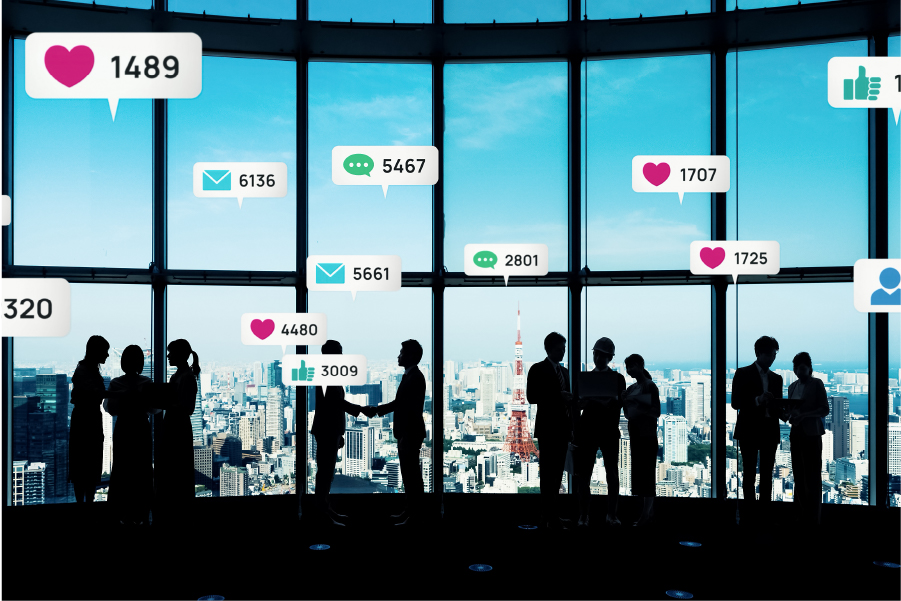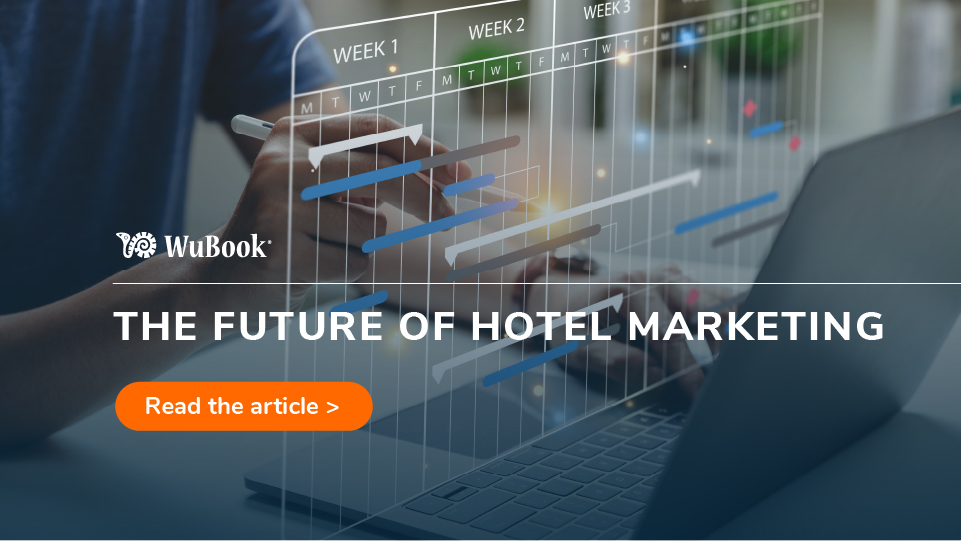Dear WuBookers, digital tools are an increasingly important part of our lives, including from a professional perspective. In many cases, technological innovations enable us to work better or provide even more sophisticated services.
An operational support that also becomes a competitive advantage: so here are the main digital trends in hospitality and how to take advantage of them to stand out from the competition.
1. IoT and home automation to improve efficiency and experience
Home automation and IoT (Internet of Things) are among the most popular innovations in the industry. The reason is clear: they improve the guest experience and increase the property’s efficiency.
Smart controls of the room’s main devices allow guests to adjust its parameters based on their preferences: a simple voice command or a click on the smartphone is all it takes to change the temperature or lighting, thus creating the desired atmosphere at all times.
On the other hand, default settings and motion sensors, for example, allow for optimal management of hotel resources, which can properly organize the work of the staff (such as cleaning the room or restocking the minibar) and reduce waste. The latter is an aspect that tourists are increasingly paying attention to and that contributes to the environmental sustainability of the facility.

2. Artificial Intelligence to anticipate demand
Among the most promising and versatile digital trends is definitely artificial intelligence (or AI). Used extensively by travelers for holiday planning, it is also a very useful tool for hoteliers.
There are many possible applications, but some of the most effective include analyzing behavioral data to better understand customer needs and market trends. A key resource for offering up-to-date and customized solutions, even when it comes to guidance and advice outside the facility.
The services of a digital concierge can support hotel staff in customer management by providing recommendations tailored to each guest.
3. Chatbots to offer continuous assistance
Speaking of AI, hotel chatbots – software programmed to interact with people by simulating a human conversation – can contribute significantly to customer satisfaction. How? By answering their questions 24/7 and guiding them through the booking process. Again, the benefit is twofold: on one hand, potential guests get information when they want it, at any time and in multiple languages; on the other hand, the hotelier avoids missing sales opportunities and can also take advantage of digital customer service to collect additional data (email addresses and various preferences) to use in their own marketing strategy.
4. Robotics, an extra help to hotel staff
Robotics also offers many opportunities in the hotel industry. A classic example is the use of cleaning robots that can be activated when necessary to guarantee a service that is always available and spotlessly clean rooms in a short time.
Or concierge robots, which assist customers with check-in operations. Or even robots dedicated to room service, in charge of delivering orders door-to-door.
Robots can support the staff, relieving them of repetitive and time-consuming tasks, limiting management costs without affecting the quality of service.

5. Virtual reality and augmented reality, technology to benefit the experience
Virtual reality (VR) and augmented reality (AR) are tools with high potential even for those who manage an accommodation facility. In fact, virtual reality makes it possible to reconstruct, with virtual images, a real environment usable at a distance; augmented reality, on the other hand, enriches the experience of reality with artificial images and inputs.
With VR, a hotel could offer its potential guests a preview of the accommodation through a virtual tour of the room and thus encourage reservations. With AR, it could equip the lobby with a map of the area that, when framed with a smartphone, provides additional information about local attractions or useful addresses.
6. Contactless check-in and check-out for those who prefer speed and privacy
More and more people are also choosing a hotel or facility to stay in based on the degree of privacy and efficiency assured. Arrival and departure are moments typically characterized by the contact with staff for reception and data registration, but not everyone likes this method and there are those who prefer faster procedures. To overcome this problem, advanced solutions such as contactless self check-in and check-out can be used.
The alternatives are numerous, from facial recognition (while respecting the privacy of biometric data) to online procedures, which speed up the activity while also lightening the work of the Front Desk.
WuBook’s Zak and the online check-in system.
Zak, WuBook’s PMS, has provided within it a system that addresses both of these needs and facilitates the entire process. When the property receives a reservation, it can decide to send a preset message to the customer with the link to the form for collecting the necessary check-in data. In this way, the customer can independently enter all the information, avoiding further operations or waiting upon arrival. Not only that, in the same form the hotelier can also request data for Institutional Reports.
In addition, the guest has several additional options available. The link gives them access to a restricted area where they can decide to guarantee, pay, print or cancel the reservation; request an invoice; contact the facility; make another reservation or add extras; enter arrival time or other notes; and, once checked out, leave a review.
This, combined with Zak’s integrations with leading automatic door-opening systems, ensures total guest independence.

7. Secure payments for sellers and buyers.
Staying on the subject of contactless and security (and privacy), it’s important to offer reliable payment options even at a distance. In this regard, technology has evolved quite a bit, perhaps even more than in other areas: economic transactions are now supported by secure systems such as payment gateways. Thanks to such systems, customers and hoteliers can rely on a secure payment environment to protect their data and their receipts. Nexi, Paypal, Stripe and the other platforms reduce the risk of fraud – on both sides – and help create a relationship of trust between customer and property. And we know how important this is for guest satisfaction and retention!
8. Hospitality TV: an extra touch of comfort (and marketing)
We conclude our review of tech trends for the hotel industry by talking about hospitality TV.
These are devices designed specifically for the industry. The hotelier can have different features that do not exist in a regular TV set, such as: control over which channels are visible, customization of welcome messages, automatic disconnection from accounts (such as Netflix or others) of guests once they have left the room. The ability to insert a hotel channel – through which to promote services and “communicate” with guests – provides interesting opportunities for upselling and cross selling; while centralized and remote controls, maximum volume settings, and energy saving are features that bring benefits on a practical and economic level.
In short, we can say without fear of contradiction that technology is already a valuable ally for the hotel business and will be increasingly so in the future.
